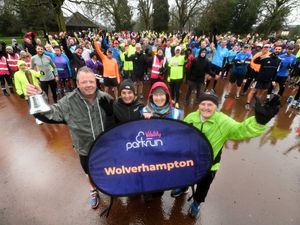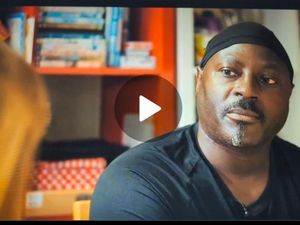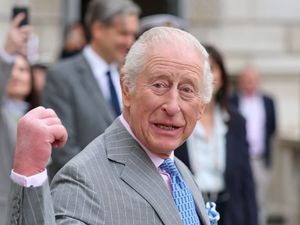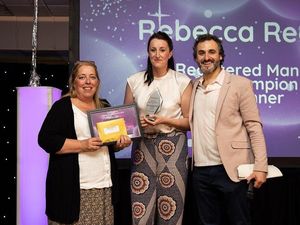Black Country triage teams trial tackles 999 problem
Police, paramedics and psychiatric nurses are working together in a revolutionary change to the way mental health emergencies are dealt with in the Black Country.
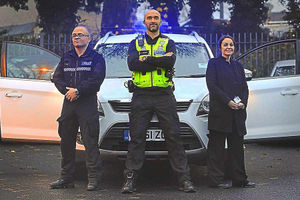
It means people get better treatment faster and far fewer need to be detained under the Mental Health Act.
The scheme – introduced on November 12 – saves vast amounts of time and money for police and ambulance crews who previously had to deal with the dramas alone.
More than 5,500 calls a year – around 20 per cent of police work in the Black Country – relate to mental health issues in the street. That figure does not include similar crises at home, revealed Chief Insp Sean Russell, the brains behind the project already successfully trialled in Birmingham.
He explained: "In the past we have not worked alongside the ambulance service or mental health providers and this has meant too many people ending up in police custody and essentially being criminalised for being unwell. It has also meant hours of police time have been wasted.
"Now we share information and work closely together.
"This has led to marked improvements in the treatment given to members of the pubic who need our help, a significant cut in the use of police stations as places of safety to almost zero and a reduction in demand on the police and healthcare systems."
"It has been highly successful primarily because it means medical experts rather than police officers are on hand to carry out assessments on individuals at the scene."
In the first 10 months of the Birmingham pilot scheme – mental health triage – between January and October, 258 people were detained under Mental health Act – known as a 136 after the section of the act used – compared with 650 over the same period 12 months previously.
Around 2,500 individuals were seen by the mental health triage teams during that period and 598 of these were stopped from having to attend a hospital A&E department because of the medical assistance of the staff now accompanying police on the emergency call.
It is estimated the prevention of every unnecessary 136 saves £3,000 in wasted time for the three services involved, because previously each worked individually on the case. Now, many of the emergency call outs are handled inside an hour, with a saving of around £900,000 during the first 10 months of the scheme in Birmingham, with a further £360,000 saved by preventing hundreds of unnecessary A&E hospital visits.
The team now offer the same service in the Black Country seven days a week, based at Bilston Police Station. It comprises a sergeant, six Pcs, four paramedics and the same number of psychiatric nurses.
They provide cover for the area from 10am to 2am every day except on Friday and Saturday nights when they are on duty until 3am, using a white Ford Cougar that looks more like an ambulance than a police car so onlookers correctly assume those taken away in it are unwell rather than criminal suspects – often the case with a marked police car.
Sgt Luke Cole, in charge of the team, said: "They are the best available because each was hand picked on the basis of their skill and passion for this job. It has worked brilliantly in Birmingham and I am sure it will be the same in the Black Country.
"Previously, 136 has been the default position for police and ambulance crews responding to emergency calls because they did not have the skill to make a psychiatric assessment. Now all the specialists needed are on-hand at the same time rather than various elements having to waste hours waiting with the individual for the other specialists to become involved in the decision making process. People threatening suicide or self harm could not be left alone until properly assessed."
Police are allowed to handcuff an individual being detained under 136 and use force if necessary.
Chief Insp Russell concluded: "There has now been a recognition most of the people in need of care and control in these circumstances are not criminals."
Other solutions now being used include alerting the individual's GP, counselling, referral to a mental health team and home treatment from a crisis team. Detention under Section 136 is the last resort rather than the first option. The mental health triage car is jointly funded by Black Country NHS Clinical Commissioning Groups (CCGs) in Dudley, Sandwell, Walsall, Wolverhampton and West Birmingham.
Dr Avi Suri, mental health lead for Walsall CCG and a local GP, said: "Many health patients who make an emergency 999 call for help are taken straight to A&E, which is often not the best place for them. The new crisis car means they will benefit from immediate treatment and support to reach the right service."
Nick Henry, West Midlands Ambulance Service general manager in the Black Country, commented: "This is a great initiative allowing us to work closely with our colleagues and, most importantly, improve the patient's experience in their hour of need."
West Midlands Police and Crime Commissioner David Jamieson added: "These schemes are proving to be beneficial in enhancing the long term safety of the public."

